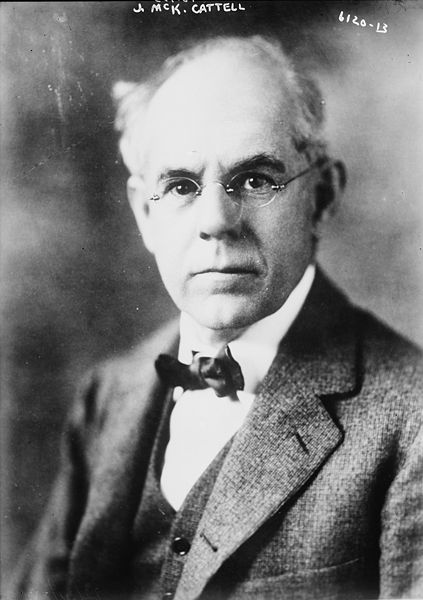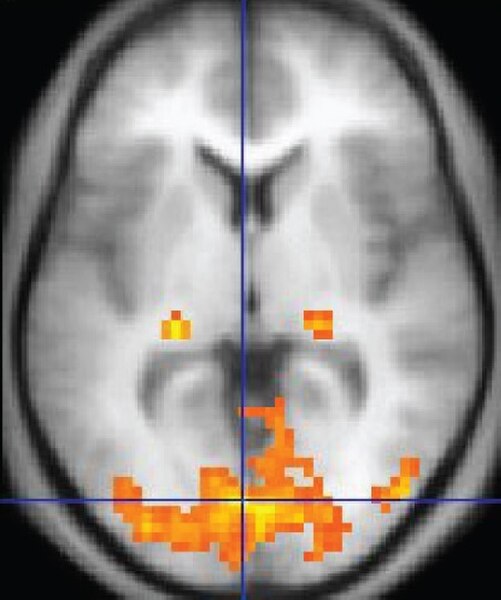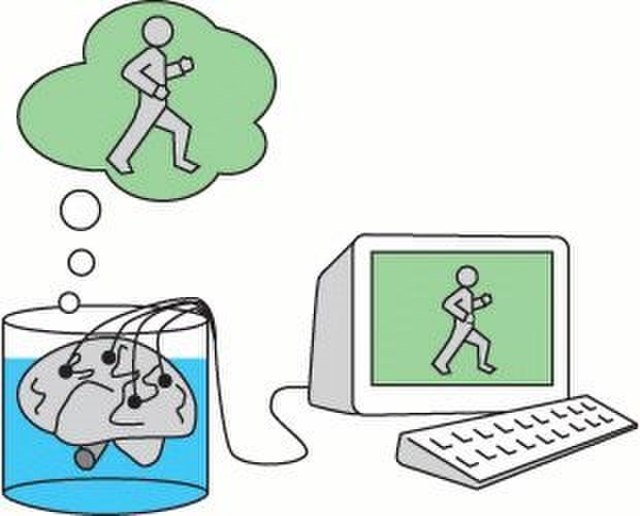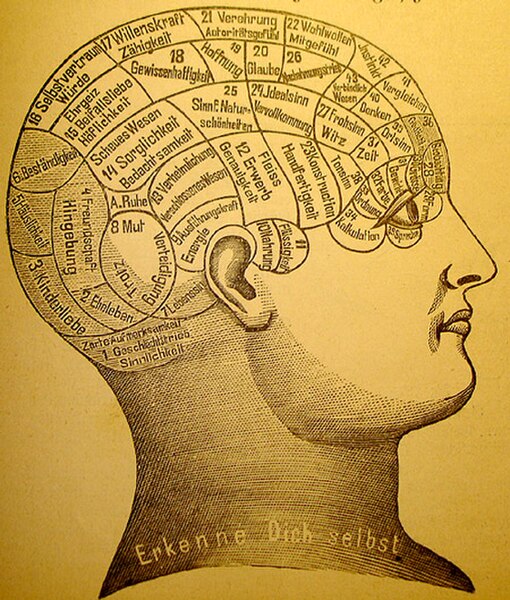Psychology is the study of mind and behavior. Its subject matter includes the behavior of humans and nonhumans, both conscious and unconscious phenomena, and mental processes such as thoughts, feelings, and motives. Psychology is an academic discipline of immense scope, crossing the boundaries between the natural and social sciences. Biological psychologists seek an understanding of the emergent properties of brains, linking the discipline to neuroscience. As social scientists, psychologists aim to understand the behavior of individuals and groups.
James McKeen Cattell, the first psychologist in the United States
Wilhelm Wundt (seated), a German psychologist, with colleagues in his psychological laboratory, the first of its kind, c. 1880
One of the dogs used in Russian psychologist Ivan Pavlov's experiment with a surgically implanted cannula to measure saliva, preserved in the Pavlov Museum in Ryazan, Russia
False-color representations of cerebral fiber pathways affected, per Van Horn et al.[V]
The mind is the totality of psychological phenomena, including thought, perception, emotion, motivation, memory, and learning. It encompasses both conscious processes, through which individuals are aware of external and internal circumstances, and unconscious processes, which can influence individuals without their awareness. Traditionally, minds were often conceived as separate entities that can exist on their own but are more commonly understood as features or capacities of other entities in the contemporary discourse. The mind plays a central role in most aspects of human life but its exact nature is disputed; some theorists suggest that all mental phenomena are private and directly knowable, transform information, have the ability to refer to and represent other entities, or are dispositions to engage in behavior.

Obsessive–compulsive disorder is a mental disorder in which a person follows compulsive rituals, like excessive hand washing, to alleviate anxiety caused by intrusive thoughts.
Functional magnetic resonance imaging is a neuroimaging technique to detect brain areas with increased neural activity (shown in orange).
Philosophers use thought experiments to explore the nature of the mind and its relation to matter, for example, by imagining how a brain in a vat would experience reality if a supercomputer fed it the same electrical stimulation a normal brain receives.
Phrenology was a pseudoscientific attempt to correlate mental functions to brain areas.




![False-color representations of cerebral fiber pathways affected, per Van Horn et al.[V]](https://upload.wikimedia.org/wikipedia/commons/thumb/1/1b/Simulated_Connectivity_Damage_of_Phineas_Gage_4_vanHorn_PathwaysDamaged.jpg/640px-Simulated_Connectivity_Damage_of_Phineas_Gage_4_vanHorn_PathwaysDamaged.jpg)



